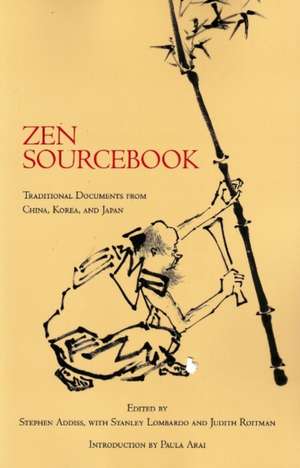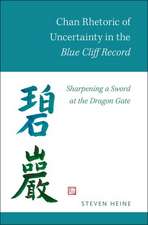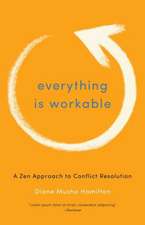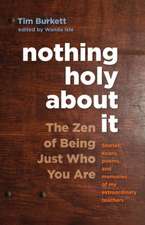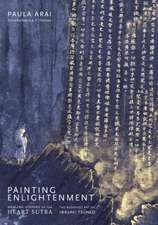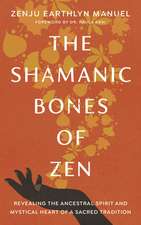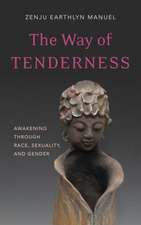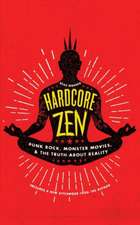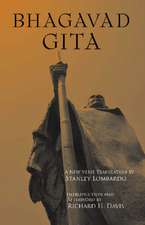Zen Sourcebook: Traditional Documents from China, Korea, and Japan
Editat de Stephen Addiss, Stanley Lombardo, Judith Roitman Introducere de Paula Araien Limba Engleză Hardback – 15 feb 2008
| Toate formatele și edițiile | Preț | Express |
|---|---|---|
| Paperback (1) | 115.21 lei 3-5 săpt. | +23.42 lei 7-13 zile |
| Hackett Publishing Company – 14 feb 2008 | 115.21 lei 3-5 săpt. | +23.42 lei 7-13 zile |
| Hardback (1) | 327.42 lei 3-5 săpt. | |
| Hackett Publishing Company – 15 feb 2008 | 327.42 lei 3-5 săpt. |
Preț: 327.42 lei
Preț vechi: 357.38 lei
-8% Nou
Puncte Express: 491
Preț estimativ în valută:
62.65€ • 65.59$ • 51.84£
62.65€ • 65.59$ • 51.84£
Carte disponibilă
Livrare economică 15-29 martie
Preluare comenzi: 021 569.72.76
Specificații
ISBN-13: 9780872209107
ISBN-10: 0872209105
Pagini: 312
Ilustrații: b/w illus
Dimensiuni: 9 x 215 x 22 mm
Greutate: 0.46 kg
Editura: Hackett Publishing Company
Colecția Hackett Publishing Company, Inc (US)
ISBN-10: 0872209105
Pagini: 312
Ilustrații: b/w illus
Dimensiuni: 9 x 215 x 22 mm
Greutate: 0.46 kg
Editura: Hackett Publishing Company
Colecția Hackett Publishing Company, Inc (US)
Recenzii
Featuring a carefully selected collection of source documents, this tome includes traditional teaching tools from the Zen Buddhist traditions of China (Ch'an), Korea (Son), and Japan (Zen), including texts created by women. The selections provide both a good feel for the varieties of Zen and an experience of its common core. . . . The texts are experiential teachings and include storytelling, poetry, autobiographies, catechisms, calligraphy, paintings, and koans (paradoxical meditation questions that are intended to help aspirants transcend logical, linguistic limitations). Contextual commentary prefaces each text. Wade-Giles transliteration is used, although Pinyin, Korean, Japanese, and Sanskrit terms are linked in appendixes. An insightful introduction by Arai contributes a religious studies perspective. The bibliography references full translations of the selections. A thought-provoking discussion about the problems of translation is included. . . . Summing Up: Highly recommended. All levels. -- Choice
. . . [T]he Zen Sourcebook [is] an excellent cross-section of some of the most important texts in Chinese, Korean, and Japanese Zen. The translations [are] well chosen from among the best available. . . . This is an excellent sourcebook for both beginners and serious practitioners. --John Daido Loori, Abbot, Zen Mountain Monastery
This is an excellent book . . . to be commended for its wide coverage; the Korean material is especially hard to find. . . . The short introductions to the selections are lucid, informative and focused, providing a good framework through which to understand the readings. Anyone who wants to work directly with translations of the primary texts, rather than textbook summaries, will find this book the most convenient available. --Brook Ziporyn, Northwestern University
. . . [T]he Zen Sourcebook [is] an excellent cross-section of some of the most important texts in Chinese, Korean, and Japanese Zen. The translations [are] well chosen from among the best available. . . . This is an excellent sourcebook for both beginners and serious practitioners. --John Daido Loori, Abbot, Zen Mountain Monastery
This is an excellent book . . . to be commended for its wide coverage; the Korean material is especially hard to find. . . . The short introductions to the selections are lucid, informative and focused, providing a good framework through which to understand the readings. Anyone who wants to work directly with translations of the primary texts, rather than textbook summaries, will find this book the most convenient available. --Brook Ziporyn, Northwestern University
